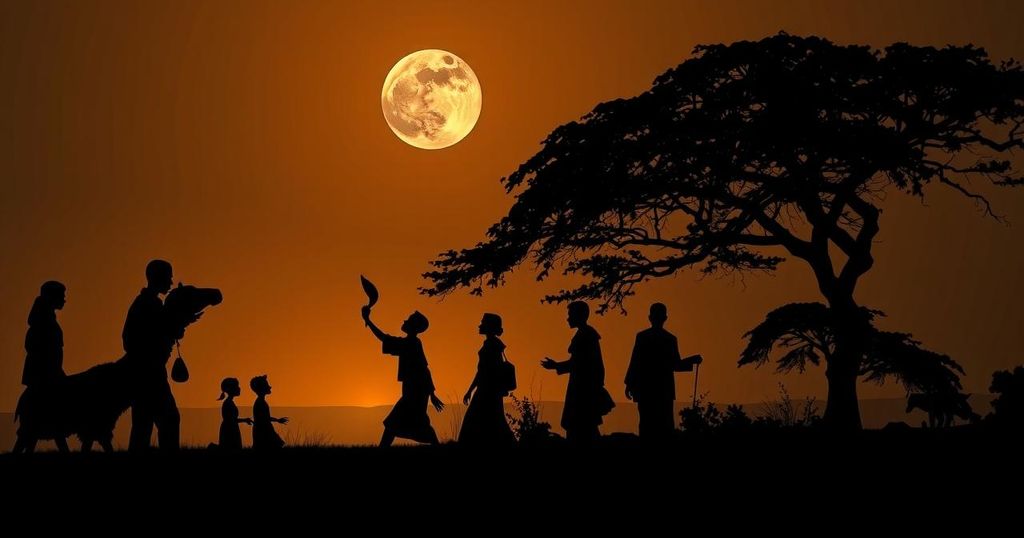Reflections on the Plight of an Orphan in Sudan
Nicholas Kristof’s opinion piece sheds light on the severe impact of the Sudanese civil war on children, particularly focusing on orphaned youth like Safaa Khatir, who lost her family amid attacks by the Rapid Support Forces. He criticizes global leaders for their inaction in the face of ethnic cleansing and genocide, emphasizing the moral implications of their silence while innocent lives continue to suffer.
In his poignant opinion piece, Nicholas Kristof recounts the harrowing realities faced by children in Sudan amidst a devastating civil war. Through his observations at the Chad-Sudan border, Kristof highlights the atrocities committed against Black African ethnic groups, particularly by the Rapid Support Forces (RSF), a militia notorious for its violence. One such child, Safaa Khatir, embodies the struggle of many orphans; she lost her family when her village was attacked, leaving her vulnerable in a landscape filled with suffering. Despite the horrific situation and the impending danger to more civilians in El Fasher and Zamzam camp, world leaders, including President Biden, fail to act decisively against entities like the UAE that support these militant forces. Kristof expresses profound concern over the moral disconnect between global leadership and the lived experiences of children in such conflict zones. He calls attention to the urgent necessity for more substantial international intervention as the humanitarian crisis deepens.
The ongoing civil conflict in Sudan has led to widespread violence and human rights abuses, particularly against marginalized ethnic communities. The Rapid Support Forces have gained infamy for their ruthless operations, contributing to a humanitarian crisis that has prompted mass displacement and orphanhood among the civilian population. International responses have often been criticized for being inadequate, despite the clear evidence of escalating violence and potential ethnic cleansing. Such conditions have rendered many children, like Safaa Khatir, all the more vulnerable to the horrors of war, underscoring the need for urgent global action to address the crisis in Sudan and protect the innocent lives affected by these circumstances.
In conclusion, Nicholas Kristof’s article serves as a powerful reminder of the urgent humanitarian catastrophe unfolding in Sudan, particularly for orphaned children facing insurmountable challenges. His focus on the plight of Safaa Khatir not only illuminates the personal toll of the violence but also calls into question the global response to such crises. The apparent moral apathy of world leaders stands in stark contrast to the suffering experienced by countless innocents, highlighting the pressing need for accountability and action to remedy the ongoing atrocities in Sudan.
Original Source: www.nytimes.com




Post Comment